The Stephen King-derived "What If iPhones Turned Us Into Zombies?" 2016 Snoozer Cell is a Staggeringly Obvious Fright Flick
It really makes you think!
The laughably awful 2016 adaptation of Stephen King’s Cell has arguably the single clumsiest and most ham-fisted metaphor in entertainment history. I’m not limiting it to film; Cell is metaphorically more forehead-slappingly obvious than any book, television show, radio drama, or haiku.
Cell asks what would happen if our unfortunate reliance upon cellular telephones turned us into drooling, mindless, nonsensically violent, and aggressive zombies? It’s a trick question because cell phones have already transformed humanity into drooling, mindless, nonsensically violent, and aggressive zombies.
Why do you think they call them cell phones? It’s because you’re a prisoner to the shiny gizmo that opened up a rich new world of information, communication, and connection while also, confusingly, making our lives much worse.
When I see brainless sheep staring vacantly at their iPhones, I want to shake some sense into them. I want to tell them to stop playing Candy Crush long enough to buy real candy for the child they abandoned so that they could devote ALL of their attention to their cell phones.
When I witness some choad playing Pokemon Go! I want to scream at them to Pokemon Go! home to their wife and children. I make a point of ripping cell phones out of people’s hands and telling them to touch grass. To drive home my point, I angrily throw the phone on the ground, destroying it instantly. I then give them a brochure about the local nature preserve.
They’re angry at first, and threaten legal action against me, but ultimately write me long, lovely letters about how grateful they are to me for destroying what I now refer to as the “devil’s intercom.”
That’s also what a character in Cell, played by Stacy Keach, calls cell phones. That might seem histrionic, but I don’t think it’s melodramatic enough.
John Cusack stars in Cell, a stupid fucking movie that I hate, as Clayton "Clay" Riddell. In a real change of pace, this Stephen King adaptation, whose screenplay he co-wrote with Adam Alleca, has a writer for a protagonist.
King has a fantastic imagination. It’s impressive that he consistently manages to put himself inside the mind of someone who is also a writer but not as successful.
Ah, but Cell is marginally different from every other Stephen King short story, novella, screenplay, or novel with a writer protagonist because Clay has written a graphic novel involving illustrations as well as words.
Cusack’s bland protagonist has the requisite troubled, complicated family life. He’s abandoned his wife and son to pursue his creative aspirations. The deadbeat dad is on the verge of realizing his dream of publishing a graphic novel when everything goes haywire while he’s at an airport.
A pulse sent out through cell phones transforms iPhone enthusiasts into savage beasts intent on destruction. They’re zombies for a digital age who behave more or less exactly like traditional members of the active undead.
Cell does nothing to establish Clay as a character before the violence and anarchy begin. We have no reason to care about him beyond his being a lead character played by a movie star.
Clay heads underground in a desperate bid for survival, meeting conductor Thomas “Tom” McCourt (Samuel L. Jackson). F. Scott Fitzgerald wrote that action is character. In Cell, that character involves running away from phone zombies when not shooting them.
Clay and Tom head to Clay’s home in Boston, where they join forces with a teenage neighbor who killed her mother in self-defense after she turned into a phoner, which is the film’s not particularly clever or original name for zombies.
Throughout their travels, our heroes encounter other survivors who managed to avoid the evil of contemporary technology and stay alive.
These include the aforementioned boarding school headmaster played by Stacy Keach. It’s always a treat when a great character actor like Keach pops up randomly. It’s similarly a disappointment when he exits the proceedings permanently just a few minutes later.
Clay and Tom acquire guns and start killing phoners. In the novel that inspired Cell, the phoners become a digital hive mind and begin evolving dramatically. Their lives consist of an endless hunt for non-phoners, but they also develop superhuman abilities.
An annoying little shit postulates that the human mind is like a battery that’s only using two percent of its power and potential. The phoners speed up evolution. In the novel, at least, they can fly.
That’s right: the novel that inspired this insulting nonsense prominently featured flying cell phone zombies. The filmmaker’s choice not to include that aspect of the book is both disappointing and understandable.
It would be silly if Cell’s newfangled zombies, who bleat out digital noises, were to soar through the air like majestic birds. It would be more than foolish. It would be ridiculous. It would be absurd. It would almost undoubtedly result in unintentional guffaws.
It would be the weirdest, most memorable, and iconic scene in Cell, and it would also be the only thing anybody remembers about Cell.
Cell is less insultingly idiotic without flying zombies, but also less distinctive.
This generic, underwhelming adaptation of what seems like one of King’s weaker works confirms that Cusack and Jackson rise or fall to the level of their material. If the material is good, they’re good. If the material is great, they’re great. But if the material is mediocre or subpar, their work tends to be mediocre or subpar.
Cusack and Jackson had solid material the last time they joined forces for a sketchy-sounding Stephen King adaptation, 1408. The concept of a haunted hotel room that murders unfortunate inhabitants within an hour and has a hard-on for the soft-rock hits of the Carpenters is patently ridiculous, but a good script co-written by Scott Alexander and Larry Karaszewski, tight direction by Mikael Håfström, and convincing performances from Cusack and Jackson made a preposterous premise sing.
That, unfortunately, is not the case here. There’s nothing that Cusack and Jackson can do with these nothing roles and a script that plays everything inexplicably straight, but not, unfortunately, in a way that’s funny or fun or enjoyable in any way.
Eli Roth was apparently in talks to direct Cell. He wanted to focus on the global chaos element of the story, while the finished film barely acknowledges anything outside its immediate purview.
Roth said of Cell, “I really am only interested in directing original stories that I write, that's another thing I learned through that whole process.”
He should have thought of that when he was offered Borderlands, a movie he lost interest in well before the public did, leaving Deadpool’s Tim Miller to direct weeks of reshoots.
Borderlands was at least a flamboyant, historic disaster. Cell, in sharp contrast, is just a bad movie. A very bad movie. A movie almost as bad as all those damn kids on their damn cell phones, staring at them and staggering about like a bunch of damn zombies!

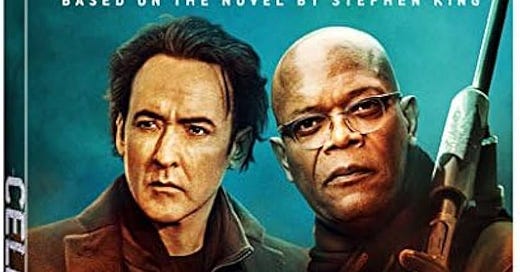



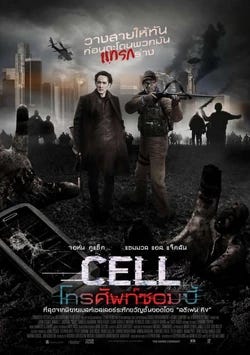
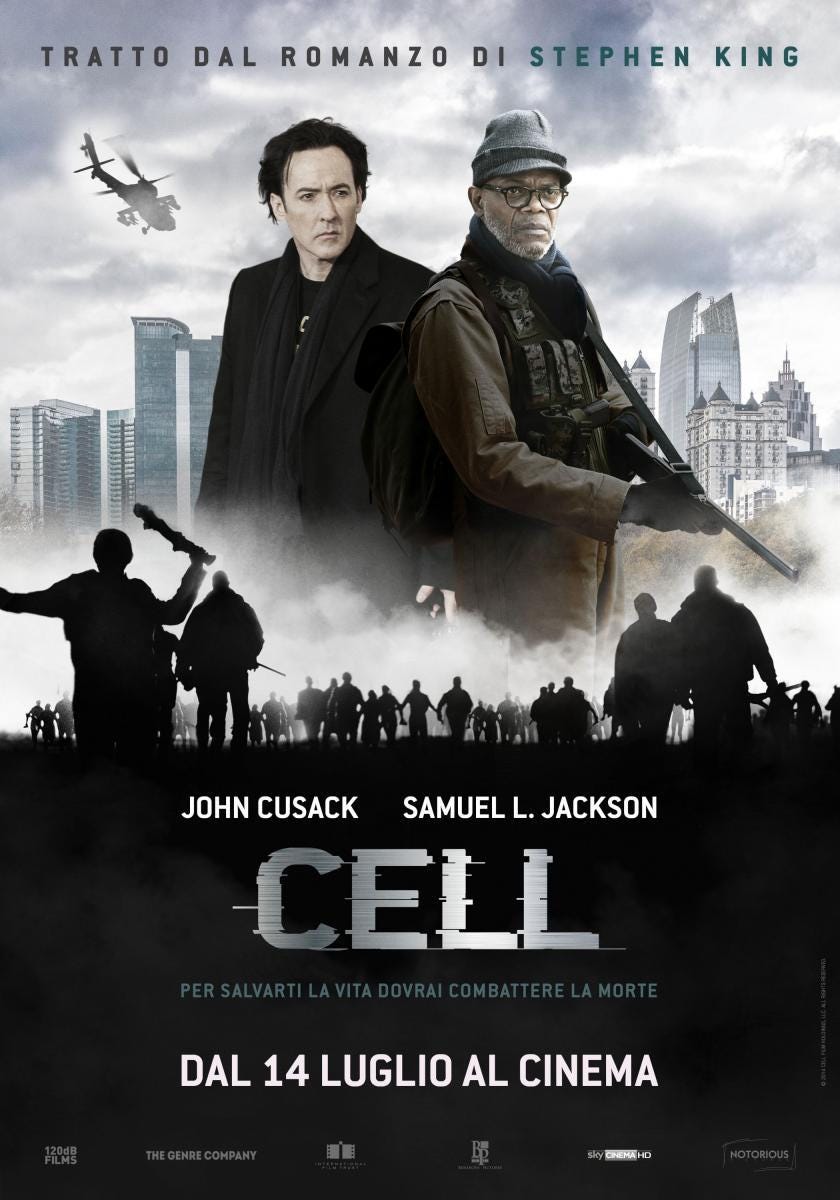
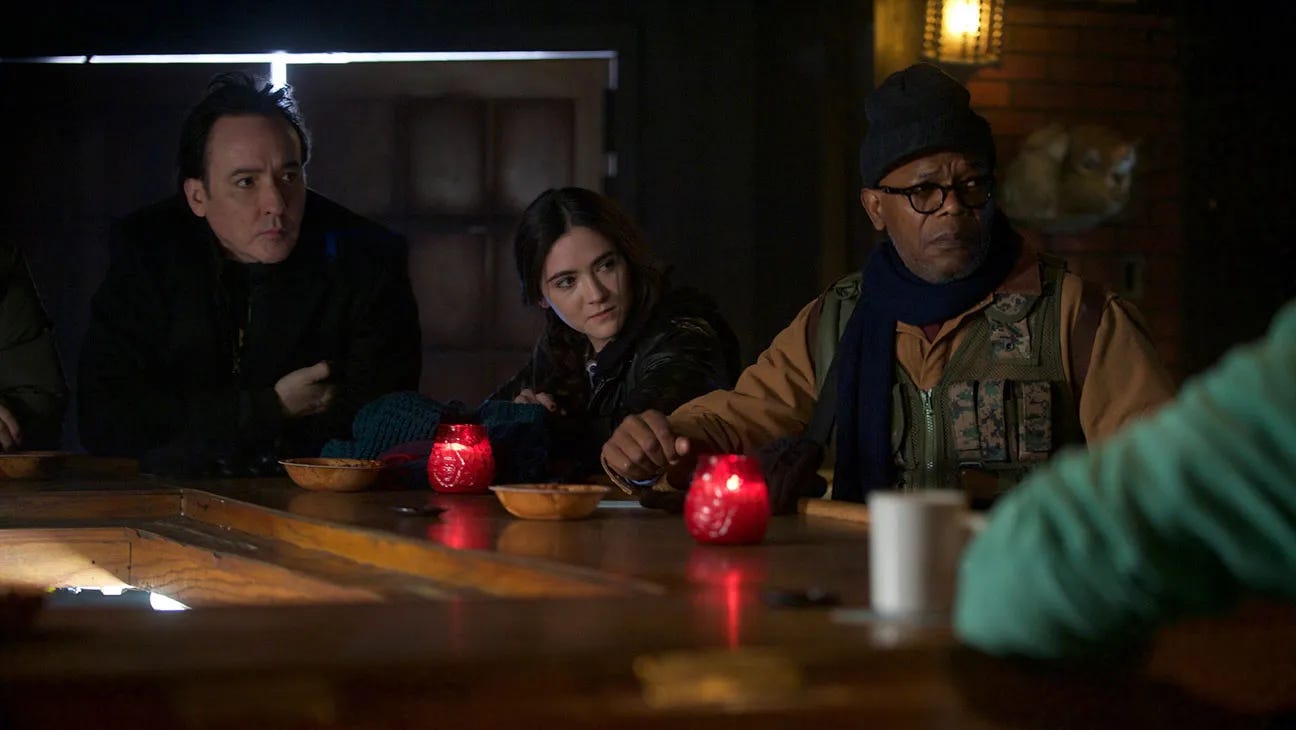
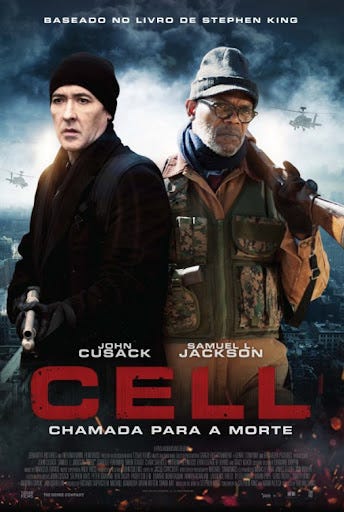
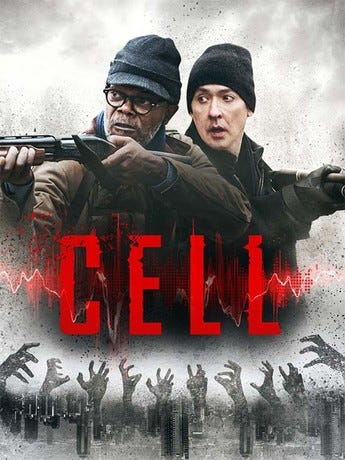
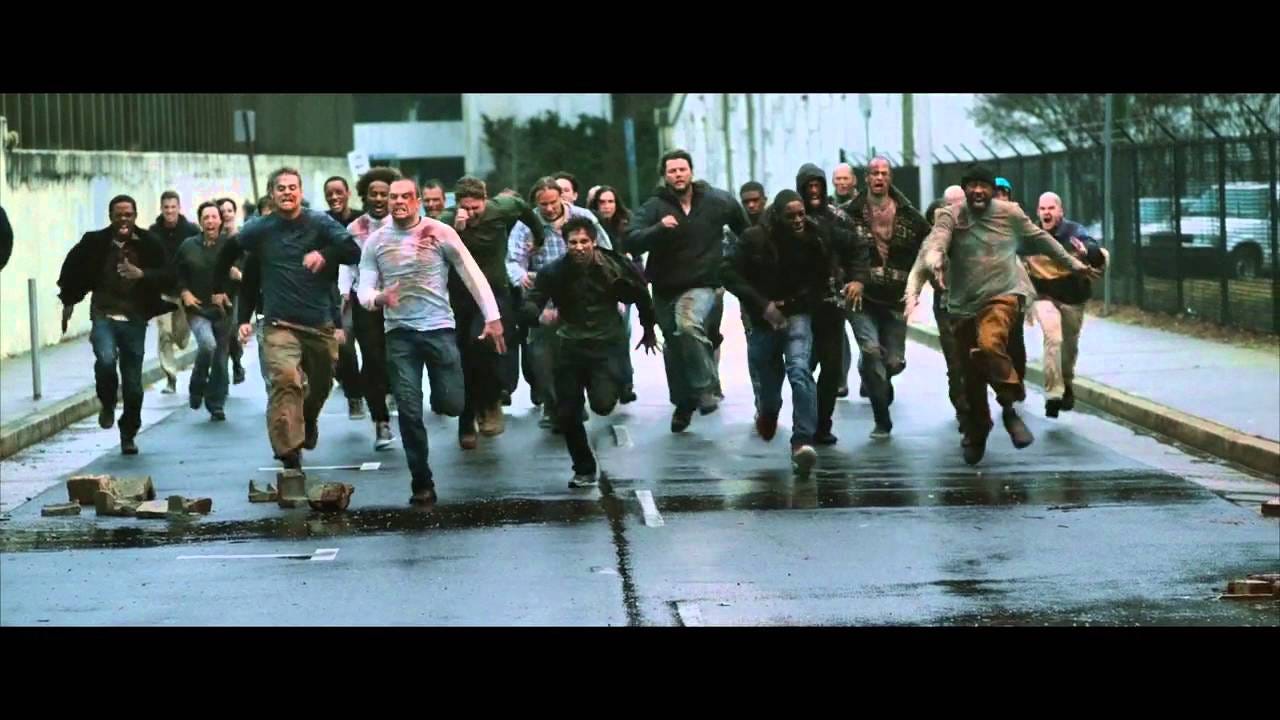


This was the only King novel that I thought absolutely SUCKED, even after reading it a second time thinking I may have missed something. I didn't. And this is coming from a Tommyknockers apologist.
And a personal insult? This movie epitomizes something I deal with at least three times a week for the last half-century, where the protagonist pronounces his last name for everyone’s benefit repeatedly, but everyone else mispronounces it because they can’t be bothered. (The only time I’ve ever heard my surname pronounced correctly and consistenly in a dramatic presentation was for the “Dinosaurs on a Spaceship” episode of “Doctor Who.”)